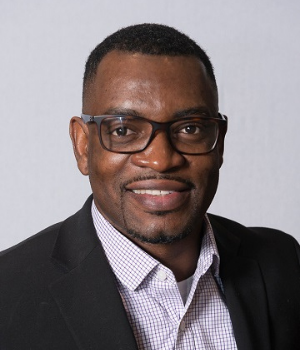
Including non-technical skills on your resume can help you stand out from other candidates with similar technical backgrounds. Consider highlighting your leadership and volunteer experiences in a separate section on your resume. Just as with your technical accomplishments, provide concrete examples with measurable outcomes instead of a laundry list of skills or buzzwords. For example, if you organized an outreach event or facilitated a symposium, indicate how many students were impacted or what feedback you received. With this information, interviewers will be more convinced that you are able to demonstrate these non-technical skills than if you simply listed “communication” or “organizational skills” on your resume.

A resume is mostly a technical and impersonal document. Non-technical skills provide an insight into an individual’s personality. Identify and create a list of your top 12-15 (or more) non-technical core skills. List these as top, mid and “somewhat good-at”. These are based on the self-awareness and the feedback received from annual review at the job or feedback/thank-you(s) received from volunteer work. These are the top core non-technical skills that are worth sharing and highlighting on the resume. Notice a common theme that has echoed several times. The ones that have echoed in the feedback from work reviews typically have specific examples and instances that lead to highlighting a particular skill. Identify if there’s a common theme to create a skills category such as: organizational skills, decision-making skills, work habits, leadership, etc. Review the job description to check what skill categories are most important for that function and list the categories in the most relevant order. Set up the identified core skills in these categories under Non-Technical Skills tab. Look for ways to indirectly and creatively mention these in the technical summaries/tabs also.

Pull and use action verbs directly from the job post to highlight your soft skills. For instance, if the job post asks for a “strong leadership experience”, write exactly that in your resume and back it up with specifics. Highlight your involvements in committees, past and current collaborations especially impactful ones, major cost-saving impacts, and leadership positions. Highlight with examples innovative and creative contributions that you’ve made especially those with broad impacts. Include all the awards and recognitions you’ve received both competitive and non-competitive. Above all, keep your resume simple, spell-checked, use bullets, and avoid long run-on paragraphs.

With publications and education curriculum listed on a resume, it is easier for a potential employer to evaluate an applicant’s technical skills. However, non-technical skills are more difficult for an employer to evaluate, and this gap is often the basis for the personal interview and technical presentation. Non-technical skills can be referred to as transferable skills and soft skills. These are skills that one learns through extracurricular activities, like peer tutoring, volunteer, sports and clubs and societies. Important to listing these activities, is not only what you did, but how you did it. The how is the non-technical skill, the transferable skill that can be applied to many aspects of a professional job. For example, let’s say you are the financial chair of a student organization. That is what you did. But a potential employer would like to know how you acted as the financial chair. Elaborate on this role by stating something like, “As the financial chair I led the semiannual fundraising efforts collecting on average $10,000 per year. Additional responsibilities included submitting an annual budget to the committee, and answering to budget at the committee’s monthly meeting.”
This article has been edited for length and clarity. The opinions expressed in this article are the author's own and do not necessarily reflect the view of their employer or the American Chemical Society.
ACS Career Consultants are experts and leaders working in the field of chemistry who have volunteered to support other ACS members’ career development through one-on-one career counselling. They can stimulate your thinking, ask important career planning questions to help clarify goals, provide encouragement, teach strategies for making meaningful career decisions, and aid you in your job search. Connect with an ACS Career Consultant today!
Copyright 2022 American Chemical Society (All Rights Reserved)








